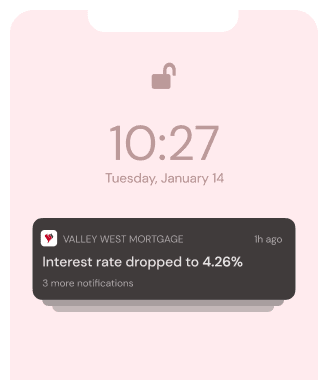
Lenders look at potential borrowers from many angles before extending credit:
It's important to understand what affects your score and how you can boost it.
One major factor in your credit score is how much revolving credit** you have versus how much you're actually using. The smaller percentage it is the better it is for your credit rating. The optimum percentage would be 30% or lower. By paying down your balances, and keeping those balances low you can boost your score.
Multiple credit card balances can be consolidated with a balance transfer credit card or personal loan could help with your score.*
What You May Not Know:
Even if you pay balances in full every month, you still could have a higher utilization ratio than you'd expect. Some issuers use the balance on your statement as the one reported to the bureau.
You may want to ask your credit card issuer if they will accept multiple payments throughout the month.
Nuisance Balances
These are small balances you have have on a number of credit cards. Gathering up all of your credit cards with small balances and paying them off can help increase your score. Selecting, one or two go-to cards for everything will keep your credit report clutter free.
The Old Debt
Negative items are bad for your credit score, and most of them will be removed after 7 years but, removing old debt that you've paid off is a bad idea. The longer your history of good debt is, the better it is for your score.
Small Dips
When making purchase inquiries when applying for credit, each time it can cause dips in your credit score that lasts a year. Scoring formulas for a mortgage, auto and student loans- allow that you'll make multiple applications but take out only one loan.
The credit score commonly used by lenders, ignores such inquiries made in the 30 days prior to scoring. If there are any older than 30 days, they will count those as one inquiry.
If lenders are using the newest forms of scoring software, then you have 45 days. Older forms, you need to keep it up to 14 days and won't count multiple student loan inquiries as one one.
Paying On Time
When making a big purchase you don't want to default on any bills. Your score could drop and you won't be able to make that purchase.
That can even extend to items that aren’t normally associated with credit reporting, such as library books, she says. That’s because even if the original “creditor,” such as the library, doesn’t report to the bureaus, they may eventually call in a collections agency for an unpaid bill. That agency could very well list the item on your credit report.
Putting cash into a savings account for a major purchase is smart. Just don’t slight the regular bills to do it.
Sinking Ship
Two of the biggies are missing payments and suddenly paying less (or charging more) than you normally do. Taking cash advances or even using your cards at businesses that could indicate current or future money stress. You don't want to do anything that would indicate risk.
Monitoring
If you are denied credit (or don’t qualify for the lender’s best rate), the lender has to show you the credit score it used, thanks to the Dodd-Frank Wall Street Reform and Consumer Protection Act.
Another smart move is to regularly check your credit reports. You’re entitled to one of each of your three credit bureau reports (Equifax, Experian and TransUnion) for free every 12 months through AnnualCreditReport.com. It’s smart to stagger them. Send for one every four months, and you can monitor your credit for free.
You can also use apps like:
FICO maintains a total of 28 different FICO scores, which are widely used by issuers of home, auto, and credit card loans. Remember that each one of these apps offers a free snapshot of a credit score based on a separate model and that snapshot is only for educational purposes. If you want to get the actual FICO credit score, you'll have to pay at least $19.95 per month.
While the advice provided by any of these services can be valuable to improve your credit score, your potential lender may be working with a very different score than the one gleaned from an app. If you're working toward meeting the requirements for a mortgage, ask your lender what credit score their using. That way, you'll choose the app that can provide a more accurate estimate.
*We're not a credit consultant nor do we claim any of these methods will guarantee your credit score to change. This is for information purposes only. We advise to contact a professional credit company for any questions or legal assistance.
**Revolving Credit: Credit that is automatically renewed as debts are paid off.
**Vantage 3.0 Credit Score: Can score millions more people than other models by incorporating up to 24 months of past credit activity – including utility and rent payments where available – which could open up more credit options to you.
Resources:
https://www.wisebread.com/7-apps-that-monitor-your-credit-for-you
https://www.creditkarma.com/credit-scores
https://www.bankrate.com/finance/

Instant notifications for your scenario
Let's do it⏰ Your offer will be delivered to your inbox in less than a minute!